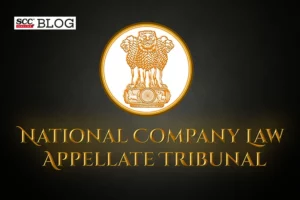National Company Law Appellate Tribunal, New Delhi: In an appeal challenging the dismissal of application questioning the CoC’s approval for the Resolution Plan for insolvency proceeding of the Corporate Debtor, a 3-member bench comprising of Ashok Bhushan, J., Barun Mitra (Technical Member)* and Arun Baroka (Technical Member), upheld the Adjudicating Authority’s decision to reject the appellants’ application challenging the resolution plan.
The NCLAT held that “merely because there is a reduction in the claim of any creditor does not make the resolution plan fall foul of law. We quite agree with the Adjudicating Authority that “resolution plan providing a lesser amount than admitted does not make it illegal”. Any clause in the resolution plan which requires creditors to take a hair-cut cannot be construed as being violative of Section 30(2)(e) of the IBC.” The NCLAT also emphasised on the binding nature of majority votes within a class of creditors and found no legal violations in the resolution plan.
Factual Matrix
The appellants are 25 homebuyers who had booked residential flats in the Canary Greens project, which was being developed by the Corporate Debtor. The Corporate Debtor failed to provide possession of the flats within the stipulated time. Consequently, the appellants filed complaints with the National Consumer Disputes Redressal Commission (NCDRC), which ordered on 31-01-2017 that the Corporate Debtor should refund the entire amount received from each complainant, including Service Tax and VAT, along with compensation at 10% per annum and litigation costs of Rs. 10,000. The Corporate Debtor was directed to make these payments within three months from the date of the NCDRC order.
The appellants filed an execution petition to recover the principal amount but, on 31-10-2019, the Corporate Debtor was admitted into the Corporate Insolvency Resolution Process (CIRP). Despite the appellants’ claims, the principal amount was not received.
The Resolution Professional raised concerns regarding the calculation of the claims filed by the appellants, leading them to file applications before the Adjudicating Authority. The Resolution Professional later admitted their claims in full, rendering the initial applications infructuous. Subsequently, the Resolution Professional invited resolution plans, and the CoC approved a plan with a 96.93% vote share. While the resolution plan was pending approval by the Adjudicating Authority, the appellants, dissatisfied with the plan, filed an application, challenging the CoC’s approval. The Adjudicating Authority dismissed the application through the impugned order dated 01-08-2023. Aggrieved by the dismissal of application vide order dated 01-08-2023, the appellants preferred the present appeal before the NCLAT.
Moot Point
-
Whether the Adjudicating Authority erred in dismissing application challenging the CoC’s approval?
-
Whether the resolution plan approved by the CoC is in compliance with the Insolvency and Bankruptcy Code, 2016 (IBC) and the relevant regulations?
Appellants’ Contentions
The appellants contended that the resolution plan violated Section 30(2) of the IBC and Regulation 38 of the IBBI (Insolvency Resolution Process for Corporate Persons) Regulations, 2016 (CIRP Regulations). It was argued that the treatment of the entire compensation amount received from the NCDRC as a refund towards the principal amount was discriminatory.
The appellants, as dissenting financial creditors, asserted their priority over financial creditors who voted in favor of the resolution plan, in accordance with Regulation 38 of the CIRP Regulations. It was argued that the resolution plan was contingent and, therefore, contrary to the IBC. The appellants claimed they were secured financial creditors entitled to full claims.
Respondent’s Contentions
The respondent contended that the appellants, as a minority group of homebuyers, lacked the standing to challenge the resolution plan, especially when the homebuyers as a class had approved it. It was contended that the appellants had been given the opportunity to raise objections before the Authorized Representative of the Home Buyers and, therefore, had no legitimate reason to feel aggrieved.
NCLAT’s Assessment
The NCLAT observed that the appellants challenged the resolution plan approved by the CoC, primarily contesting Clause 9.2.2B(iii), alleging it was discriminatory and contrary to the IBC. The Adjudicating Authority considered the appellants; objections to Clause 9 and found that the plan was legally approved by the CoC. The Adjudicating Authority also concluded that a resolution plan offering a lower amount than admitted did not make it illegal.
The NCLAT cited Jaypee Kensington Boulevard Apartments Welfare Assn. v. NBCC (India) Ltd., (2022) 1 SCC 401, where the Supreme Court emphasised that the majority vote within a class of creditors was binding and that dissenting minority creditors could not challenge the resolution plan.
The NCLAT rejected the appellants’ contention that the resolution plan was contingent and conditional and it was noted that the plan adequately addressed their concerns. The NCLAT observed that the Adjudicating Authority did not err in dismissing the appellants’ application, as there was no violation of applicable rules and regulations.
The NCLAT upheld the Adjudicating Authority’s dismissal of the application. The NCLAT based its decision on the following key points:
Top of Form
-
The appellants, as a minority group of homebuyers, could not challenge the resolution plan approved by the majority of homebuyers.
-
The CoC’s approval of the resolution plan represented the collective decision of the class and was not subject to judicial review.
-
The resolution plan, which provided for a reduction in claims, did not violate Section 30(2) of the IBC.
-
The resolution plan adequately addressed the concerns of the appellants, making their objections inconsequential.
-
The resolution plan’s treatment of compensation amounts did not constitute discrimination.
NCLAT’s Decision
The NCLAT dismissed the appeal, upholding the Adjudicating Authority’s decision to reject the appellants’ application challenging the resolution plan.
[Ankur Narang v. Nilesh Sharma, 2023 SCC OnLine NCLAT 750, order dated 20-10-2023]
*Judgment by Barun Mitra (Technical Member)
Advocates who appeared in this case :
Mr. Pawan Shree Agrawal and Ms. Shubhangi Negi, Counsel for the Appellants
Mr. Kanishk Khetan, Counsel for the Respondent No. 1

